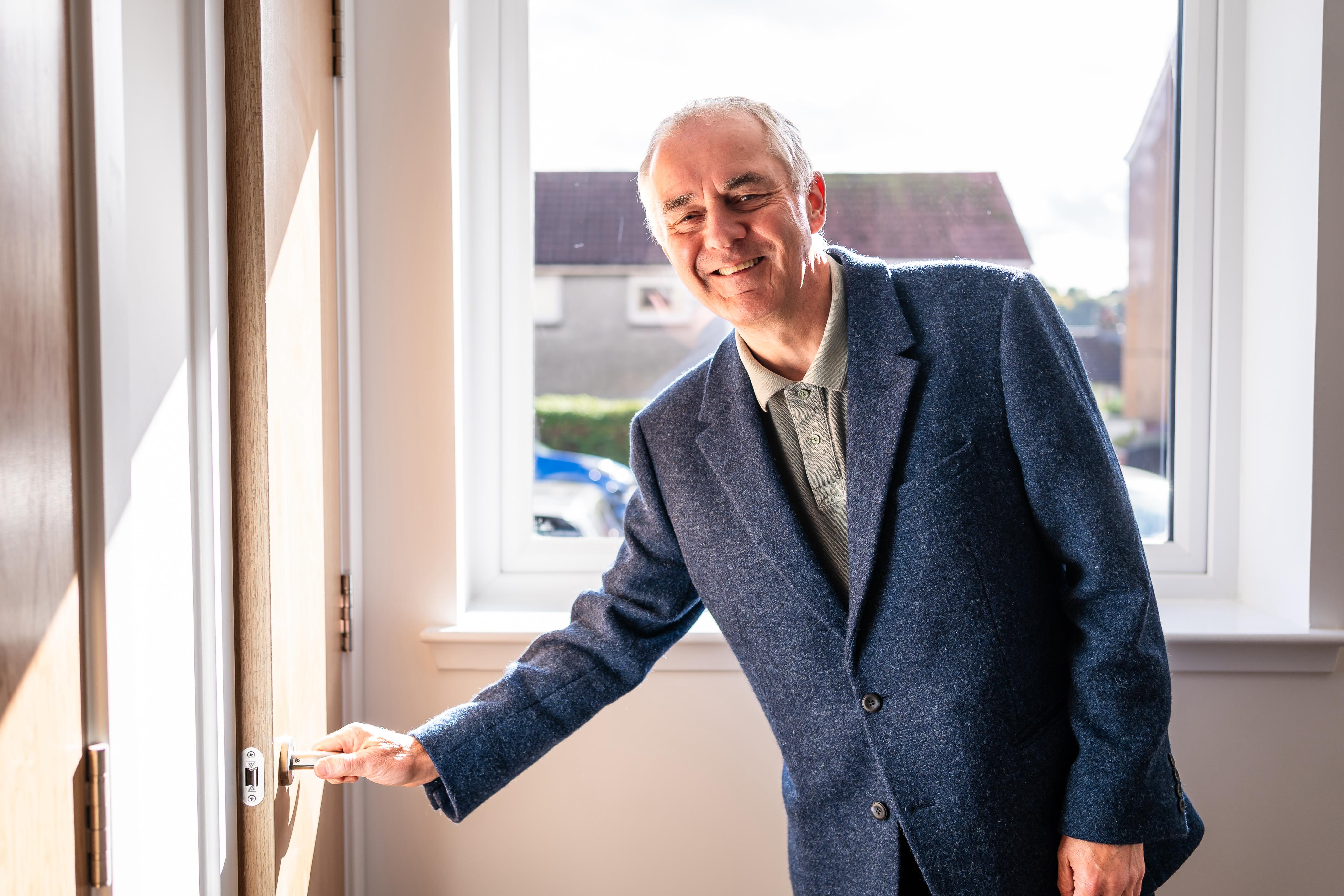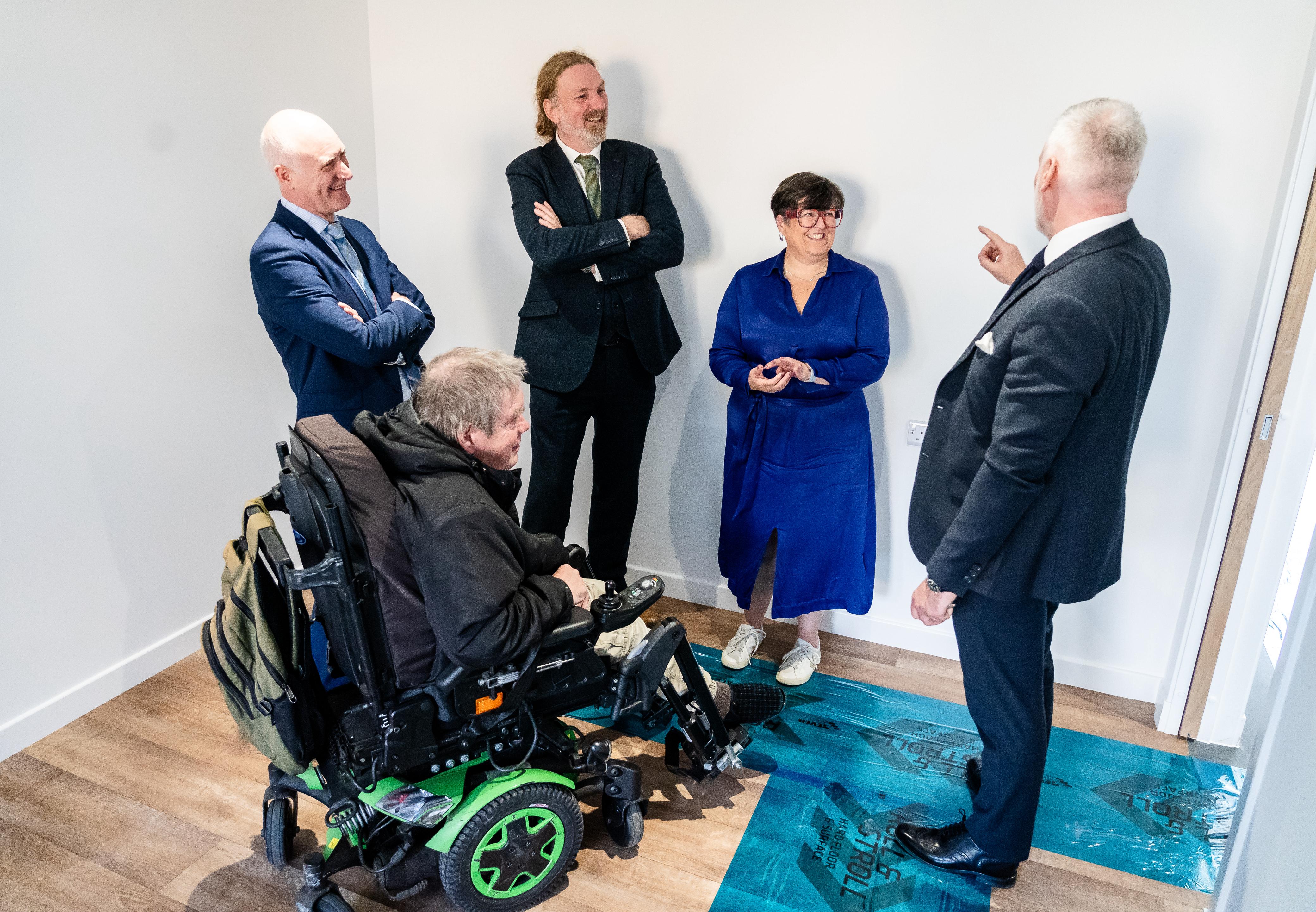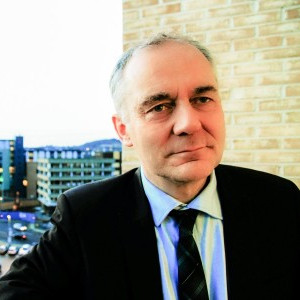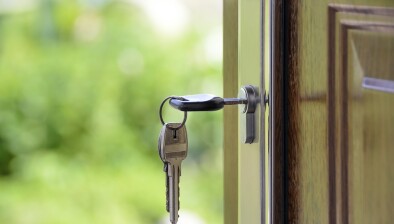Black’s Blog: Wheels, lifts and transformational housing

Jimmy Black testing out the Blackwood House in Dundee
Following a conversation with Simon Fitzpatrick for the Scottish Housing News Podcast, Jimmy Black thinks about wheels and lifts, beautiful new Blackwood Homes and folks stuck up thousands of tenement stairs.
Wheels. Perhaps architects should have an app which lets them push a virtual pram through every part of the houses they design. Not just a pram, but a sholley*, a washing machine on a dolly, a piano on casters and, of course, a wheelchair.
We all use wheels. The easiest flittings I ever flut were in and out of a multi, 13D Hazlehead Court. Shifting furniture up and down 13 floors was a breeze on a sack trolley in a lift.
We choose to forget about wheels when we procure or design new homes. We still build tenements, four in a blocks, villas and townhouses, all of which contain stairs. Occupational therapists (OTs) say stairs are good for older people’s legs, but that’s all that’s good about them.
So should every new home be all on one level? No, of course not. That brings me to Lifts. At the very least, we should design space for lifts to be added to anything we build from now on. It should be possible to cut a square hole in your ceiling and plug in a lift. In fact, such lifts are already in common use where there is space to fit them.
One of the important themes from the recent Scottish Housing News/Horizon/Campion accessibility summit was the need to do something with existing houses to make it possible for more people to live in them. In Scotland, we have thousands of tenements full of people who will lose their legs, wait years for hip replacements, lose all their strength through debilitating illness. Currently, we make such people wait months or years for a scarce ground floor all-on-one-level flat (rare as hens’ teeth), before we rehouse them.

(from left) Joe FitzPatrick MSP, Blackwood tenant, Chris Law MP, Councillor Lynne Short and Simon Fitzpatrick
Innovators are designing slim-line air source heat pumps which will fit into traditional sandstone tenements. That’s being driven by net zero targets and the certain knowledge that we cannot simply demolish and rebuild all the tenements. Surely accommodating the basic need of people to get in and out of their homes is equally pressing?
Adding lifts to tenements could be the thing which enables people with disabilities to continue living in the homes they love for all of their lives. It can’t be that difficult. Expensive? Yes, but building new social rented homes at a typical cost of, say, £265,000 each is expensive too.
That brings me to the 66 genuinely wonderful new homes built in Charleston, Dundee by Campion for Blackwood, in partnership with Hillcrest and Bield. People with very severe disabilities will find these transformational, because wheels and lifts were very much in the designers’ minds.
Doors open at the touch of a button. Lifts enable wheelchair access to all floors. Doors are wider than normal, bathrooms are bigger to allow turning space. Handrails are discreetly fitted to look as though they are normal parts of the house, not in any way cold and clinical. Cupboards, sinks and cookers rise and fall to suit the height of the person using them.
It’s not just about the fabric. Blackwood’s CleverCogs system, internet connectivity, sensors which monitor activity and much else are all part of the package.
Removals companies, piano porters and washing machine deliverers will like these houses too.
The new homes look beautiful, something which pleases Simon Fitzpatrick, CEO of Blackwood, who explains the thinking behind this innovative development. It’s a very easy listen, and an education for anyone who wants to know more about the challenges and opportunities in accessible, supported housing.
Blackwood Homes are exemplary, but no-one should pretend that everyone can have one of these. Fully accessible homes are surely for a minority of people with very significant needs. With some innovative thinking, many people with disabilities could manage well in their existing houses. If we just gave them a lift.
*A sholley is a shopping trolley
A transcript of this episode is available here.
The Scottish Housing News Podcast is co-hosted by Kieran Findlay and Jimmy Black. All episodes are available here as well as on the following platforms:









